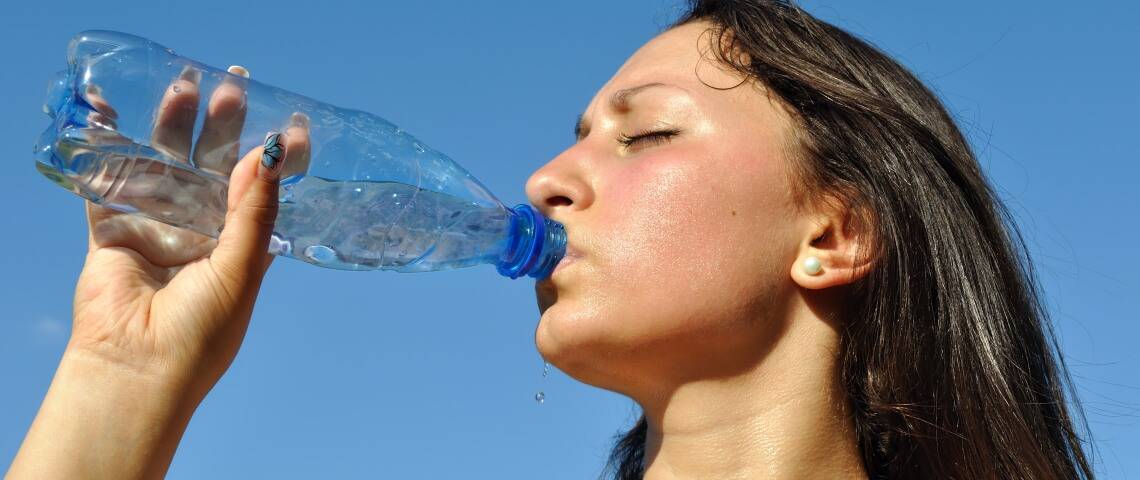Probably Not.
The summer sun can feel great after a long winter and rainy spring but proper sun safety is important in order to prevent heat exhaustion and dehydration.
Up to 75% of the body’s weight is made up of water. Dehydration means your body does not have as much water and fluids as it should, and occurs when the amount of water leaving the body is greater than the amount being taken in.
- Your body may lose too much fluid from:
- Excessive sweating (for example, from exercise)
- Excessive urine output, such as with uncontrolled diabetes or diuretic use
- Fever
- Vomiting or diarrhea
Some easy prevention tips include not drinking coffee, colas, or other drinks that contain caffeine when active or outside. They increase urine output and make you dehydrate faster. Also, make sure to drink plenty of water before, during, and after your outdoor activities. This is very important when it’s hot out and when you do intense exercise. You should drink water or rehydration drinks.
Dehydration can be mild, moderate, or severe based on how much of the body’s fluid is lost or not replenished. When it is severe, dehydration is a life-threatening emergency.
What are the symptoms?
Mild dehydration symptoms are often (but not limited to): thirst, dry skin, skin flushing, dark colored urine, dry mouth, fatigue, weakness, chills or head rushes. Infants and children are more likely to become dehydrated than adults because they weigh less and their bodies turn over water and electrolytes more quickly. The elderly and people with illnesses are also at higher risk.
What are some treatment options for dehydration?
Drinking fluids is usually enough for mild dehydration. It is better to drink small amounts of fluid often, instead of trying to force large amounts of fluid at one time.
Encourage your child to drink extra fluids or suck on flavored ice pops. Electrolyte solutions or freezer pops are very effective and are available at your local grocery store and pharmacy.
Intravenous fluids and a hospital stay may be needed for moderate to severe dehydration. Your NextCare health care provider can identify and recommend the most appropriate treatment plan for the cause of the dehydration.
